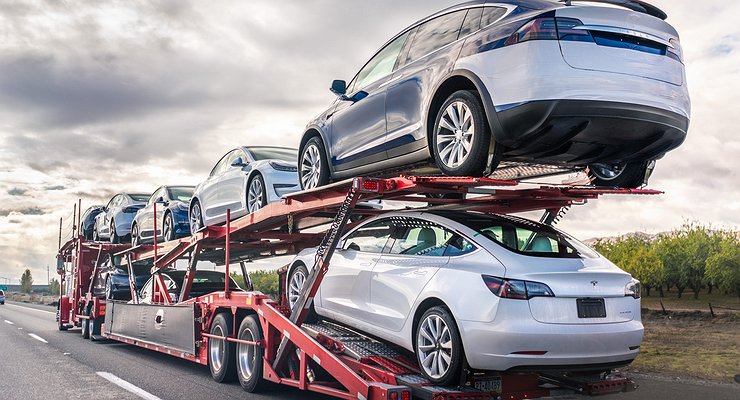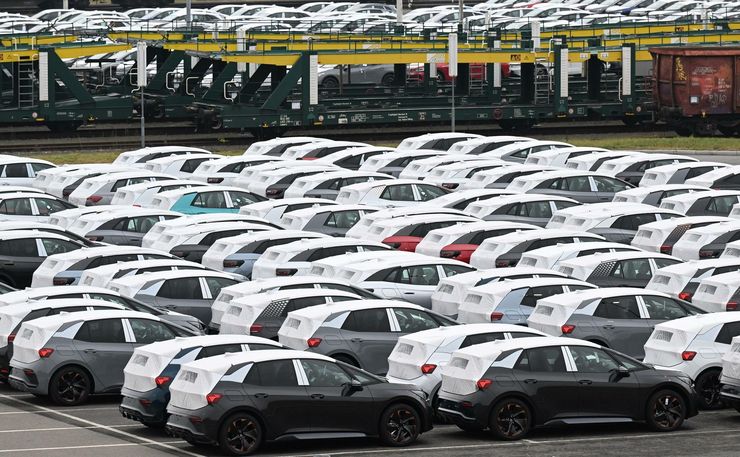Why official car dealers started to refuse parallel imports
- November 25, 2022
- 0
The initial hype for cars brought “in gray” subsided and calmed down: dealers across the country offer a fairly wide range of new cars in different price ranges.
The initial hype for cars brought “in gray” subsided and calmed down: dealers across the country offer a fairly wide range of new cars in different price ranges.

The mass refusal to export new cars of foreign brands to Russia and the production of individual models in our country hit the moral component the hardest: many drivers grabbed their heads and ran to buy cars at three times the price, reassuring themselves with the mantra that “tomorrow there is only Zhiguli”. By the way, there is simply not enough Zhiguli, but everything else is available, even if you have to run for a certain color and equipment.
The “mistake” for this is parallel imports, which the dealers have artificially cut off from official distributors established in just a few months. Initially, the launch pad, excuse the tautology, was Kazakhstan, then the Emirates, and now China is gaining strength, able, it seems, to block the rest of the world with its capabilities. Only now the need for this very parallel supply is not increasing, as it should be, but on the contrary, it is decreasing. And there are good reasons for that.
The first is the lack of affordable loans, which has been the main driver of sales for many years. As long as the refinancing rate is kept at 7.5%, there is no “cheap” money. In addition, many processes in the country have moved in an unpredictable direction – in this case they say about “diesel” “out of order” – so banks are in no hurry to issue the same loans, albeit at a high interest rate. The chance of getting a defaulter, worsening an already shaky portfolio, rushes to heaven. No buyer – no sale, then the chain is free.
But the main argument is not buyers’ money, but the “pennies” of the merchant himself. Buying a batch of “parallel-import” cars is a long process, with payment made today and sale, albeit highly profitable, in a few months. Until the transfer goes through, until it is sent, until it is brought and cleared through customs, a significant amount of money remains frozen for a long time. That is the working capital that everyone is sorely lacking.
Of course they are always missing, but today they are particularly strong. During these few months that the car carrier leaves, the company can simply go bankrupt and no longer be able to pay the salaries and rent. But the cars still have to be sold! Therefore, official dealers begin to calculate profitability and risks and get a rather unpleasant verdict: parallel imports, along with market saturation, lose their attractiveness.
Large networks can still afford to tow cars across borders, but small regional dealers can no longer afford it. There is too much at stake, so it is easier and more reliable to deal with maintenance, look for a lot of wholesale spare parts or try to negotiate with the next Chinese brand, which now, unlike brands from other countries, can deliver real cars even with postal payment.
Will parallel imports disappear completely? Of course not, they will be handled by private traders or special companies that are crafted precisely for such transactions. But Kazakh and Arab cars are already starting to disappear from the showrooms of official dealers.

The mass refusal to export new cars of foreign brands to Russia and the production of individual models in our country hit the moral component the hardest: many drivers grabbed their heads and ran to buy cars at three times the price, reassuring themselves with the mantra that “tomorrow there is only Zhiguli”. By the way, there is simply not enough Zhiguli, but everything else is available, even if you have to run for a certain color and equipment.
The “mistake” for this is parallel imports, which the dealers have artificially cut off from official distributors established in just a few months. Initially, the launch pad, excuse the tautology, was Kazakhstan, then the Emirates, and now China is gaining strength, able, it seems, to block the rest of the world with its capabilities. Only now the need for this very parallel supply is not increasing, as it should be, but on the contrary, it is decreasing. And there are good reasons for that.
The first is the lack of affordable loans, which has been the main driver of sales for many years. As long as the refinancing rate is kept at 7.5%, there is no “cheap” money. In addition, many processes in the country have moved in an unpredictable direction – in this case they say about “diesel” “out of order” – so banks are in no hurry to issue the same loans, albeit at a high interest rate. The chance of getting a defaulter, worsening an already shaky portfolio, rushes to heaven. No buyer – no sale, then the necklace is free.
But the main argument is not buyers’ money, but the “pennies” of the merchant himself. Buying a batch of “parallel-import” cars is a long process, with payment made today and sale, albeit highly profitable, in a few months. Until the transfer goes through, until it is sent, until it is brought and cleared through customs, a significant amount of money remains frozen for a long time. That is the working capital that everyone is sorely lacking.
Of course they are always missing, but today they are particularly strong. During these few months that the car carrier leaves, the company can simply go bankrupt and no longer be able to pay the salaries and rent. But the cars still have to be sold! Therefore, official dealers begin to calculate profitability and risks and get a rather unpleasant verdict: parallel imports, along with market saturation, lose their attractiveness.
Large networks can still afford to tow cars across borders, but small regional dealers can no longer afford it. There is too much at stake, so it is easier and more reliable to deal with maintenance, look for a lot of wholesale spare parts or try to negotiate with the next Chinese brand, which now, unlike brands from other countries, can deliver real cars even with postal payment.
Will parallel imports disappear completely? Of course not, they will be handled by private traders or special companies that are crafted precisely for such transactions. But Kazakh and Arab cars are already starting to disappear from the showrooms of official dealers.
Source: Avto Vzglyad
Donald Salinas is an experienced automobile journalist and writer for Div Bracket. He brings his readers the latest news and developments from the world of automobiles, offering a unique and knowledgeable perspective on the latest trends and innovations in the automotive industry.